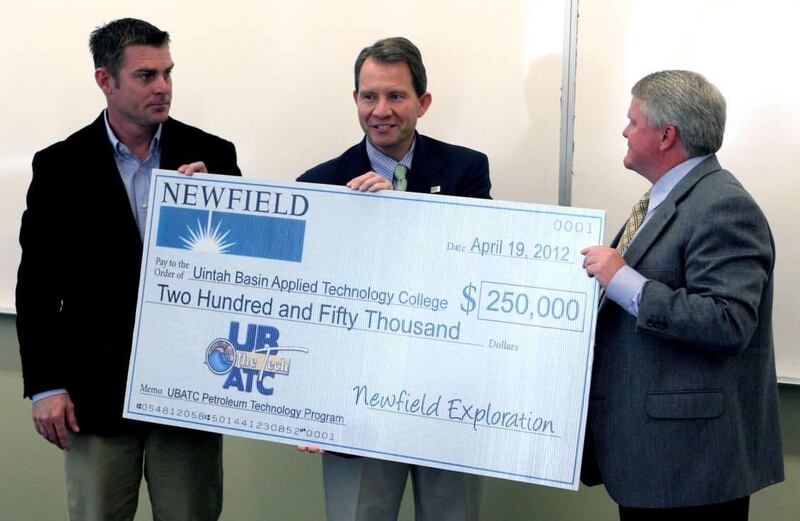What is new is the increasing pressure on middle-class people to get involved in various types of giving, such as volunteering or donating money. The pressure has moved from the very rich and trickled down to ordinary people. – University of Alberta professor Margrit Talpalaru
Celebrity athletes typically give money to popular, well-known charities. Not golfer Tom Lehman.
"He had a charity on his list that no one outside the state of Arizona had ever heard of," said Robert Cottrell, a development consultant for both nonprofits and major donors. "His list of giving was not impressive in terms of big-name organizations, but the people he gave to needed it just as much. He doesn't give for any kind of social acceptance."
Lehman is the exception, experts say. More and more, people are seeking prestige, recognition and public adulation for their giving, or are donating because of social pressure. One researcher calls this growing phenomenon "conspicuous giving."
The idea of giving to receive recognition is as old as giving itself. Researchers, however, are interested in the changing forces that come into play and influence giving today in a media-saturated society. The increasing media presence of charitable celebrities and causes, the expanding influence of social media and the expectation that the wealthy should donate heavily, all influence both giver and receiver. This presents both potential problems, but also opportunity, experts say.
Conspicuous Giving
Conspicuous giving is a phrase coined by University of Alberta professor Margrit Talpalaru, who presented the idea at a recent Humanities and Social Sciences conference.
She based the phrase on English sociologist Thorstein Veblen's term "conspicuous consumption," which describes spending money and buying luxury items to display economic power.
Talpalaru defined conspicuous giving as the very visible act of giving money or time for charity. She based her research on qualitative analysis of the media, but she recognized giving for recognition dates back hundreds of years. Her research did unearth a recent trend, however.
"What is new is the increasing pressure on middle-class people to get involved in various types of giving, such as volunteering or donating money," she said. "The pressure has moved from the very rich and trickled down to ordinary people."
The pressure largely comes from media outlets such as television and social networks, where celebrities and activists have a visible platform to promote their causes.
"A society likes ours is very much interested in every step celebrities take," Talpalaru said. "For better or for worse, celebrities are models of behavior."
In some cases, it is for worse. Many celebrities promote well-known, larger charities. This leaves many smaller, grassroots initiatives excluded from media hype and donor activity. Cottrell suggested donators investigate smaller local charities that may be just as effective as a larger, more established charity.
"There are all these great charities that are off the radar screen but are not big enough to create a social buzz," he said. "But often they are doing superb work."
When conspicuous giving occurs, it can create other problems, experts say. Gifts given in response to a social trend or movement can actually hurt a charity in the long run, Cottrell said.
"An organization might expand programs due to a temporary spike in giving that they will have to abandon one or two years later," he said. "This can create problems for charities in the long run because many of them are not savvy enough to understand what's going on. Giving to follow a trend produces temporary insincere support for the wrong reasons."
Unwelcome pressure to give can also create an issue, Talpalaru said. Wealthy celebrities such as Bill Gates and Warren Buffett have set new expectations that the rich should give a substantial amount of money to charity.
"People can take advantage of the generosity of their peers," she said. "The door is open to exploitation when giving becomes such a big thing."
Talpalaru's research doesn't define conspicuous giving as good or bad. It is intended instead to open up discussion and give donators something to consider.
"What I'm arguing for is for people to become aware that this pressure exists," she said. "The aim of my research is to point to all these interconnected examples of conspicuous giving and let people know about it."
Why we give
"Giving does make people happier," said Dan Ariely, professor of psychology and behavioral economics at Duke University and a founding member of the Center for Advanced Hindsight. "There is fantastic research recently that shows giving even small things like a cup of coffee makes people happy."
The need for recognition is a powerful force behind why people give as well, he said.
"On top of the internal happiness that we get from giving, we also get reputational issues," he said. "That is a separate feeling that is about telling other people who we are and getting other people to appreciate us."
Giving as a selfless act still exists, said Eileen Heisman, CEO of the National Philanthropic Trust, and is in fact a prominent factor for many people.
"For most people at the end of the day, they are giving because that cause is really important to them," she said. "It's not the tax deduction but the cause that stirs them."
The best giving is done for a cause that deeply touches the donor's heart and is not done because of a current trend of media pressure, Cottrell said.
Effective giving
Ariely cited Bill Gates as an example of someone who is not only generous but also thoughtful and smart with his giving.
"If we just give to give that's great, but if we give in a way that maximizes the welfare of what we're doing I think that's much better," Ariely said. "People need to be thinking about how they are going to give in an efficient way."
Heisman has some suggestions as well as to how individuals can give most effectively.
"It's important not to feel overwhelmed. Don't be swayed by fads or celebrities," she said. "Pick two or three causes and give fewer but larger gifts to those causes. Also, stay with those causes for three to five years. Don't be fickle. Whatever your interests are you can apply those principles."
Following these simple guides not only helps the individual but also the charity. Heisman said charities appreciate individuals who showcase some dedication and longevity to a cause.
"I think that people should give, but I do think that people need to have a strategy for what they want to do," Ariely said. "People should have a thoughtful process about what they care about and why they care about it.
Does it matter?
Although there can be complications when giving becomes pressurized or a public outcry for recognition, some experts say that as long as giving is taking place it is generally a good thing for the philanthropic field.
If the impact of the money is the same and brings access to books, does it really matter the size of the name on the building?" Heisman said. "I think the real questions are where's the money going and is it doing good?"
Ariely has a similar perspective. He said giving, for any reason, still makes a difference.
"I think conspicuous giving is actually a good thing," Ariely said. "Satisfying our ego is a nice thing, and we could do it by buying a big house or we could do it by donating. Donating is a nicer thing to do, and on top of that it sends signals to other people that donating is a good thing to do."
Despite potential negative consequences, celebrities can use their media presence to simply raise awareness of an issue, Ariely said, and they often help the average citizen to feel more associated with a certain cause.
"Celebrities are very helpful to get people to continuously think about the issues of giving," Ariely said. "Celebrities give a face to a campaign and when the campaign has a face, it's sometimes easier to feel connected to it."
Steve Barsuhn, a pastor for the nondenominational Rocky Mountain Bible Church, said his organization treats giving with anonymity.
"As a pastor, I have no idea who gives what," he said. "We do not recognize givers. We believe it is a matter between them and God and what you want to do for the Lord and how you show gratitude."
Experts agree that thoughtful giving based upon what the donator truly cares about will be most rewarding for both giver and receiver in the long run.
"People should give thoughtfully and respond to people who are connected to their agendas," Ariely said. "Thinking carefully about what you care about and then following up on that is a good recipe for a better future."





